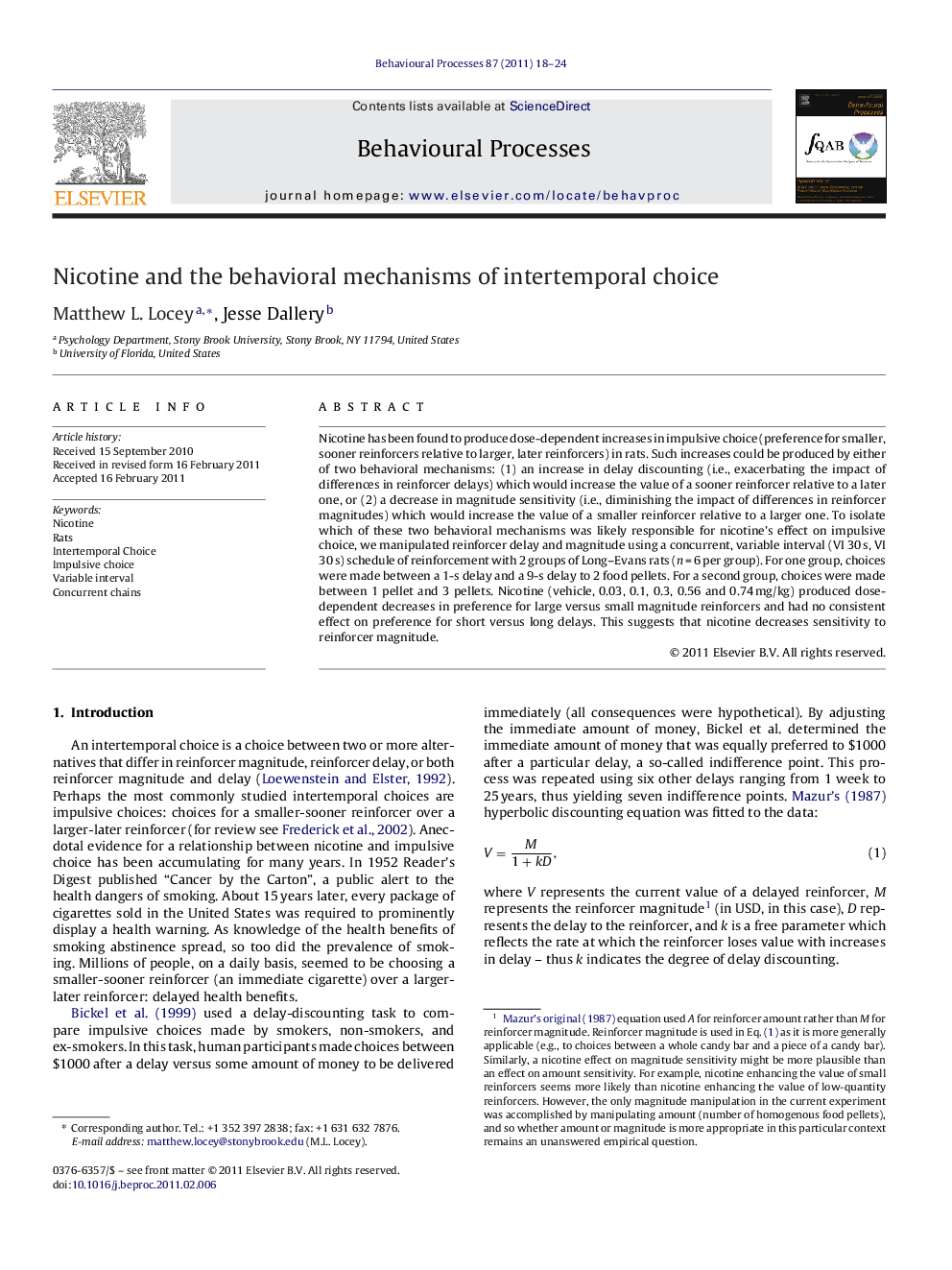| Article ID | Journal | Published Year | Pages | File Type |
|---|---|---|---|---|
| 2427044 | Behavioural Processes | 2011 | 7 Pages |
Nicotine has been found to produce dose-dependent increases in impulsive choice (preference for smaller, sooner reinforcers relative to larger, later reinforcers) in rats. Such increases could be produced by either of two behavioral mechanisms: (1) an increase in delay discounting (i.e., exacerbating the impact of differences in reinforcer delays) which would increase the value of a sooner reinforcer relative to a later one, or (2) a decrease in magnitude sensitivity (i.e., diminishing the impact of differences in reinforcer magnitudes) which would increase the value of a smaller reinforcer relative to a larger one. To isolate which of these two behavioral mechanisms was likely responsible for nicotine's effect on impulsive choice, we manipulated reinforcer delay and magnitude using a concurrent, variable interval (VI 30 s, VI 30 s) schedule of reinforcement with 2 groups of Long–Evans rats (n = 6 per group). For one group, choices were made between a 1-s delay and a 9-s delay to 2 food pellets. For a second group, choices were made between 1 pellet and 3 pellets. Nicotine (vehicle, 0.03, 0.1, 0.3, 0.56 and 0.74 mg/kg) produced dose-dependent decreases in preference for large versus small magnitude reinforcers and had no consistent effect on preference for short versus long delays. This suggests that nicotine decreases sensitivity to reinforcer magnitude.
► Nicotine decreased preference for large vs. small reinforcers. ► Nicotine had no effect on preference for sooner vs. later reinforcers. ► Low-to-moderate doses of nicotine increased responding for small reinforcers. ► High doses of nicotine decreased responding for large reinforcers.
